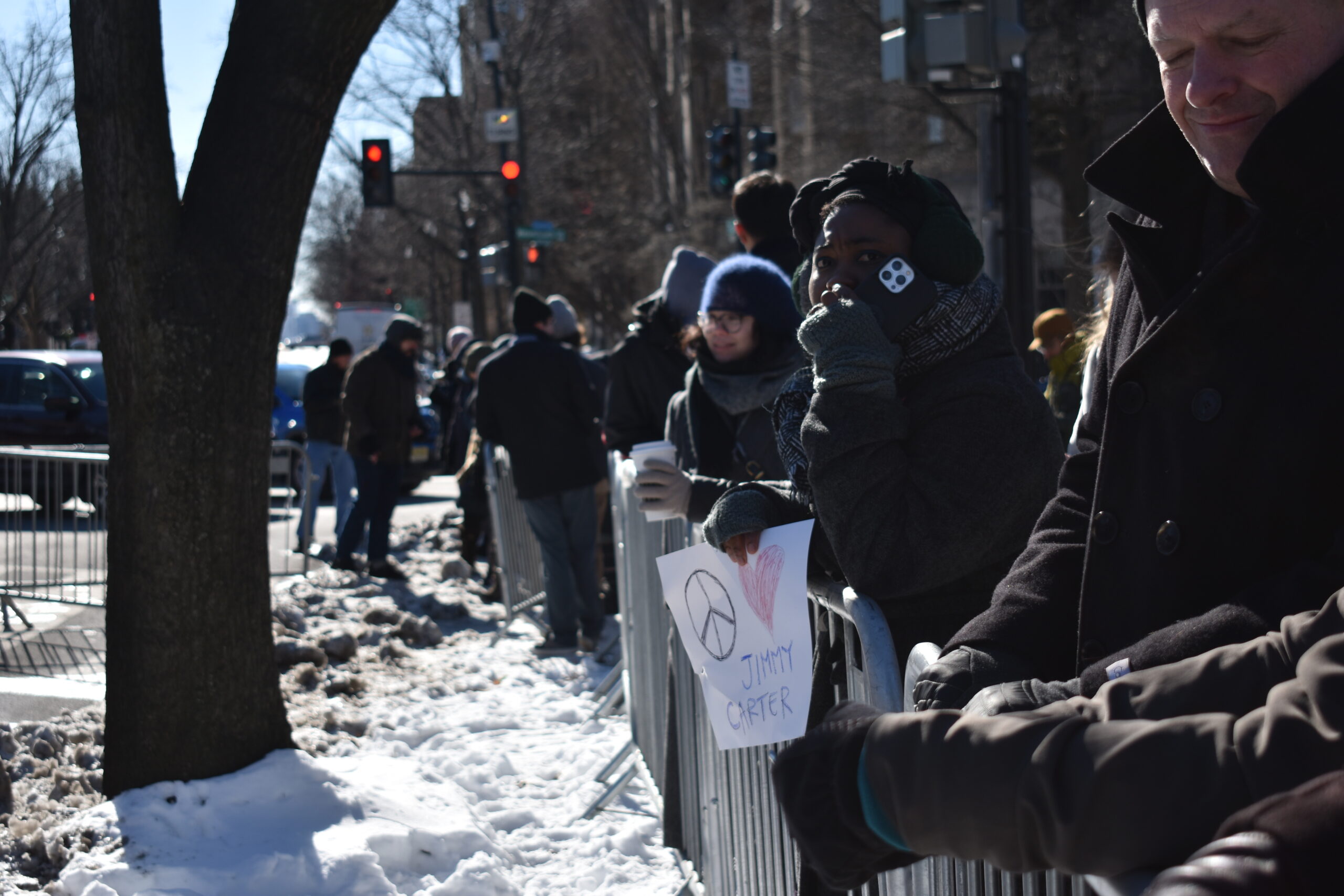ANNAPOLIS–The coalition of rural voters, urban Black voters and white progressives that carried Jimmy Carter to victory in the 1976 presidential election was fragile, and he spent much of his long retirement watching it unravel.
That unraveling is as apparent today in Maryland as it is elsewhere in rural America. Many of the rural counties that delivered majorities to Carter in 1976 now vote reliably Republican.
All five living presidents assembled at Washington’s National Cathedral for Carter’s state funeral on Thursday to mark Carter’s life, at a time when Democrats are reassessing how best to win back the heart of that coalition. Among Democrats this week, there has been a sense of mourning – both for the man and for the ties that used to bind their voters together.
For some rural party leaders in Maryland, the societal changes over recent decades have been so sweeping that the lessons of 1976 no longer hold sway.
Carter’s victories in a handful of Eastern Shore counties were “a holdover of the old Democratic South,” said Bill Flook, president of the Democratic Club of Kent County. “The dynamics of 1976 were in some ways unique, and [they] are impossible to replicate.”
Carter had the support of liberal urbanites, young progressives and Black voters. But his campaign also leaned into Carter’s rural upbringing and Southern Baptist faith to appeal to voters open to outreach from the Republican Party. The backing of former Alabama governor George Wallace likewise bolstered Carter’s appeal to white southerners who had drifted away from the Democrats a decade earlier.
In the Maryland Statehouse on the day of Carter’s state funeral, lawmakers praised Carter for the personal qualities that drew voters of many different backgrounds to him.
“I think it’s an opportunity for us to look back and see how he was able to pull a coalition of folks together that still had a good level of support from the South,” said Sen. Clarence Lam, a Democrat representing Anne Arundel and Howard Counties.
“I think we’ve come full circle now, and that evolution is done,” Lam told Capital News Service. “But is there some way for us to look back at his legacy and see how he was able to speak to different constituency groups that oftentimes are missing – rural communities, faith-based communities? He really understood and still had some deep connections that I think would be helpful for us to rebuild.”
In Flook’s view, Carter’s successes on the Eastern Shore underscored that, at least in 1976, the region retained strong ties to the South. Culturally speaking, he said, Kent County more closely resembled the South than some communities in the Washington suburbs that also delivered majorities for Carter in 1976.
For Sen. Jim Rosapepe, a Democrat who represents Prince George’s and Anne Arundel Counties, Carter’s religious faith was particularly important.
“That was a very powerful thing in terms of the culture of America, to have a president who embraced his faith the way he did,” said Rosapepe, who served as a U.S. ambassador during President Clinton’s administration.
“The Democratic Party has lost a lot of people of faith,” Rosapepe said. “You can see that in the polling, and that’s a problem for the Democratic Party. He showed respect for people of faith … Joe Biden showed respect for people of faith, but the party in general has tended to downplay that.”
By 1980, Carter’s perceived failures while in office largely overshadowed his appeal as a southerner, an evangelical Christian and an outsider. He failed to win reelection.
The Democratic Party’s more recent victories in parts of rural Maryland have largely relied on influxes of liberal voters to places like Kent and Talbot Counties, rather than on coaxing former Democrats back into the coalition.
By Flook’s estimate, roughly three-quarters of the members of the Democratic Club of Kent County are relatively new to the area. He pointed out that, even as rural communities in Kent County continue to shrink, Chestertown attracts a growing population of retirees. He says that town is getting bluer.
Flook argues that the party shouldn’t expend too much energy trying to turn back the clock on rural America’s political realignment.
“What I think we need to do is connect with folks who are actually struggling,” he told CNS. “They could be urban, suburban, rural, whatever, but it’s the working middle class, the working poor. That’s why we lost the election in 2024.”

